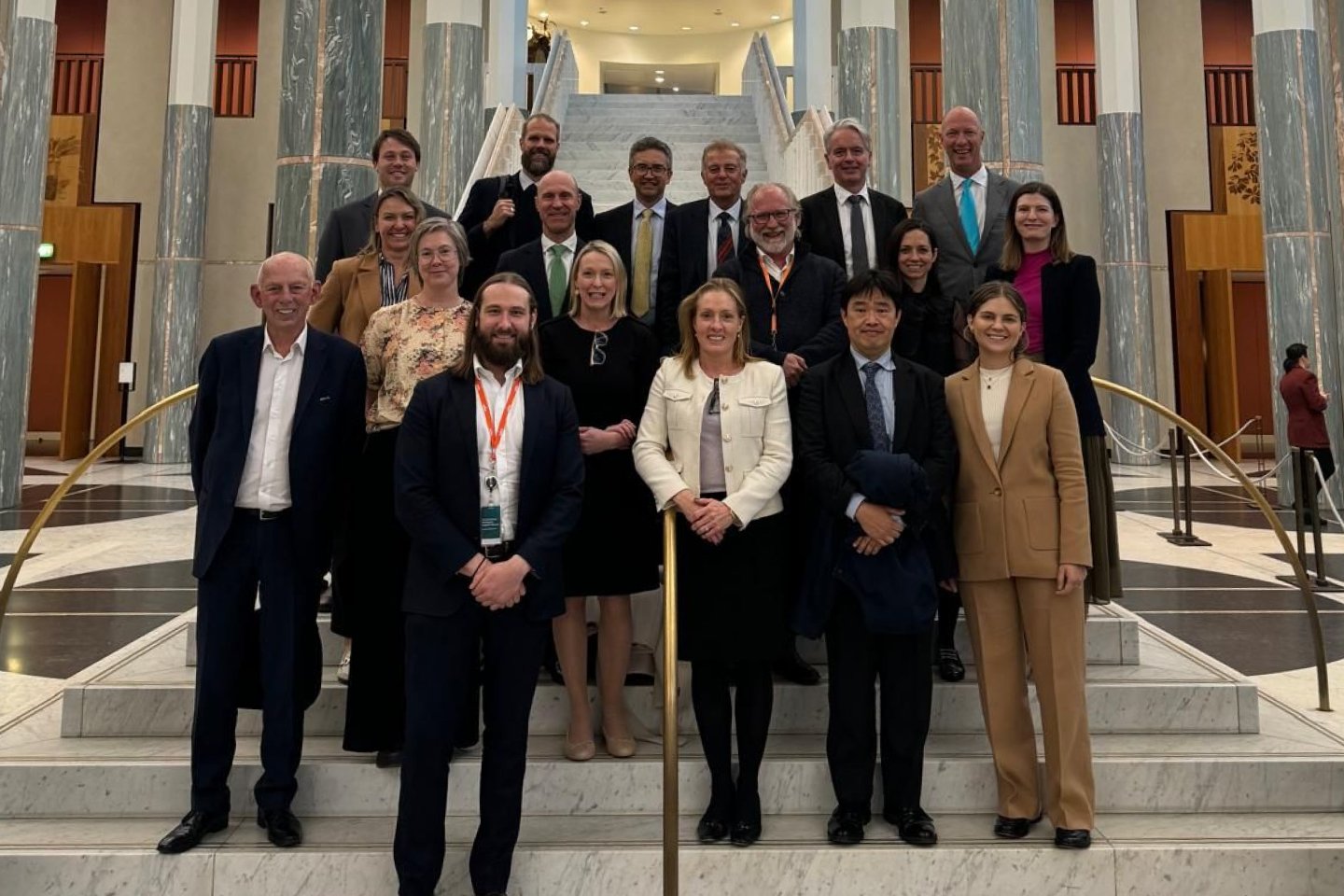Now is the time – our actions on climate policy
The progress the government makes in developing science-based climate policy in coming months has the potential to set Australia up for success in meeting the country’s commitments to reach net zero by 2050, and to contribute to limiting warming in line with the Paris Agreement.
So, in August we joined other investors in Canberra to have conversations with key politicians and heads of government departments, signaling our support for an ambitious 2035 target and strong policy to support it.
Our latest efforts in Canberra build on work we have been doing behind the scenes this year, and our trip to the nation’s capital this time last year when we were asking for the government to mandate a 1.5 degree and a higher warming scenario in its climate related financial disclosure legislation. This disclosure legislation has passed into law in recent weeks.
Pivotal moment
We recognise this as a pivotal moment in Australia’s history, that’s why we’re pushing hard right now.
Climate Policy is now our fifth strategic stewardship pillar alongside: turning off finance for the expansion of fossil fuel; advancing alternatives to animal research, reducing embodied emissions in building materials; stopping livestock deforestation.
The reason we see this as a pivotal moment is because the government will shortly be setting the 2035 Nationally Determined Contribution (NDC). This federal emissions reduction target is an important signal from policymakers to businesses and investors about the direction and pace of our transition to clean energy and away from high emitting fossil fuels. Without this coordination, it’s unlikely that investors or businesses will be investing at the scale required in clean technologies and infrastructure to meet the 2050 target.
We have not yet had a 1.5 degree aligned federal emissions target in Australia, and the government now has an opportunity to ensure we have an ambitious target and a plan for how we can take the least cost, least harm, pathway to net zero.
But the government won’t be ambitious if we – business, investors and society more broadly – don’t give them the license to.
The cost of inaction
There are lots of urgent policy issues for the government to work on, including the housing crisis and inflationary pressures. While it might be tempting to put the climate threat on the backburner and prioritise more immediate issues, to pause or wind back the decarbonisation of our economy would have serious impacts on people, planet and animals.
We believe our ethical and financial goals cannot be fully realised unless dangerous climate change is prevented because of the systemic threat posed to the continuing good health of the planet and society on which investment returns depend.
Australia needs to set a plan and reduce emissions now, to avoid the extremes and the costs of warming, which have already started.
There is no zero cost pathway. We can pay for transition now, or we can pay for warming. The costs on lives, on livelihoods, on jobs and on businesses will be far greater, in the world where we don’t transition, or do so at the eleventh hour.
So, we are pushing hard to maintain Australia’s commitment to the Paris Agreement goals. The government is vital to our economy’s transition to clean energy, and our efforts to influence government policy will be more effective if coordinated.
The government won’t be ambitious if we – business, investors and society more broadly – don’t give them the license to.

Australian Ethical Chair Steve Gibbs (far left, front/second row) in Canberra in August with an Investor Group on Climate Change delegation.
How we're leading
Over the last 12 months, we’ve been working on policy submissions, direct engagement, and public advocacy on key climate policy. Australian Ethical Chair, Steve Gibbs joined a group of investors in Canberra in August, meeting with key policy makers to discuss the importance of the 2035 target and to encourage ambition, in partnership with the Investor Group on Climate Change (IGCC) and Principles of Responsible Investment (PRI). Outcomes from these kinds of discussions will take time and might not be immediately tangible, as education and building relationships with politicians is not easily measured.
We’ve been leading a positive lobbying thematic engagement through Climate Action 100+ ( CA100+) – a global initiative of investors designed to engage the world’s largest corporate greenhouse gas emitters – and IGCC this year, to create a show of public support from investors and large Australian listed companies across the economy for an ambitious and 1.5 degree aligned 2035 target.
After a period of outreach to investors and companies, we held a co-drafting session with key large companies that are emissions intensive, as well as those who will be impacted by a warming climate, to shape the wording of a public letter to parliament alongside investors.
Ten of these companies and five investors participated in the co-drafting process. The letter will be finalised and opened for signatories, before being published in the coming months, ahead of the Climate Change Authority (CCA) releasing its advice to government on the target, in order to provide support for the government in setting an ambitious target.
We contributed to two submissions to the CCA on the ambition of the 2035 NDC, coordinated by the IGCC, in order to lift the ambition of the submission and the target.
We also contributed to IGCC’s submission on the Future Gas Strategy, and met with the Department of Industry, Science and Resources on the strategy to encourage the alignment of gas policy with Australia’s commitment to Paris, and with the government's objectives to reduce emissions.
We contributed to Responsible Investment Association of Australasia’s (RIAA’s) submission to the Department of Climate Change, Energy, the Environment and Water on proposed changes to the Environmental Protection and Biodiversity Conservation Act and the need to have a climate trigger on new, emissions intensive projects.
Now is the time. We will continue to look for opportunities to amplify our calls to government through policy submissions, direct engagement and public advocacy for an ambitious 2035 target.



